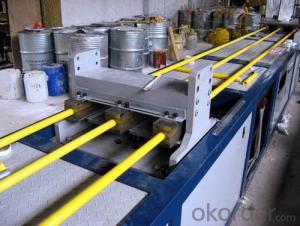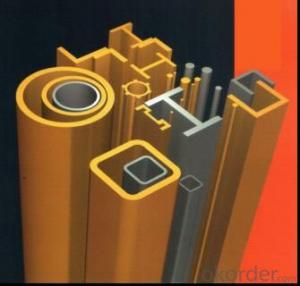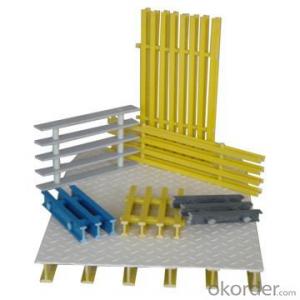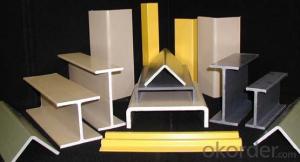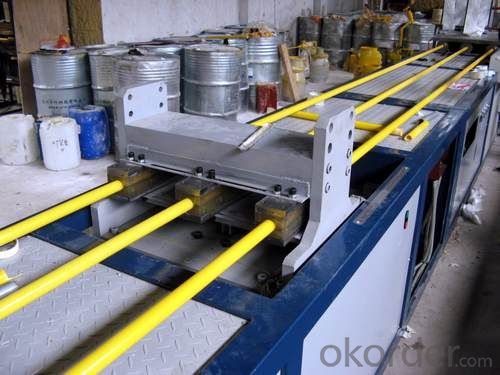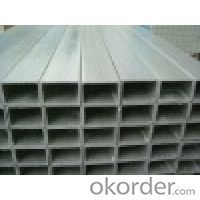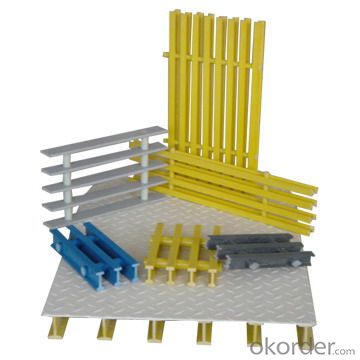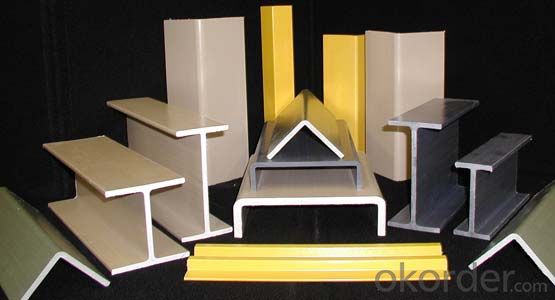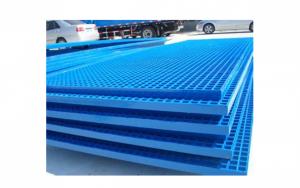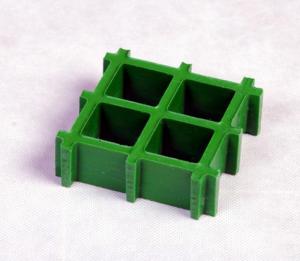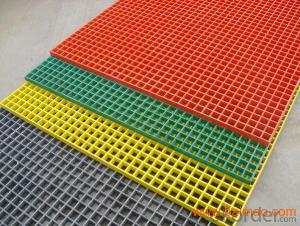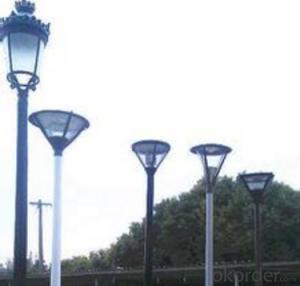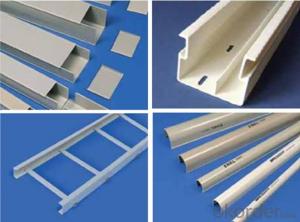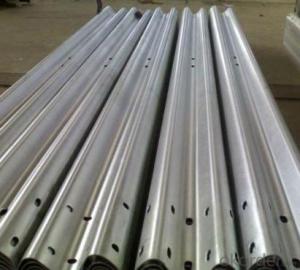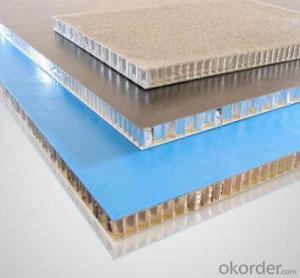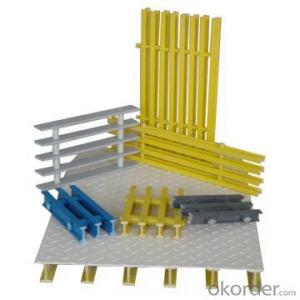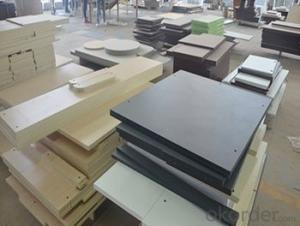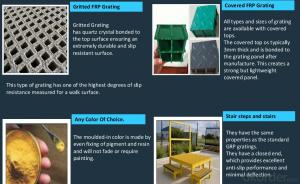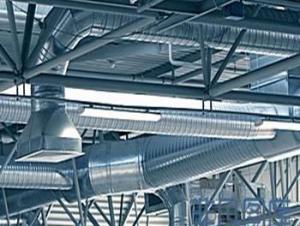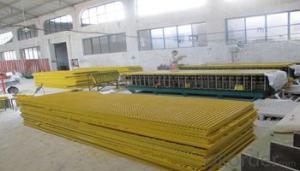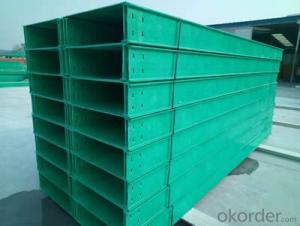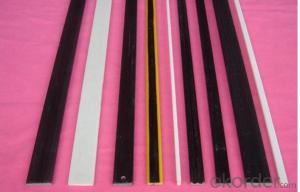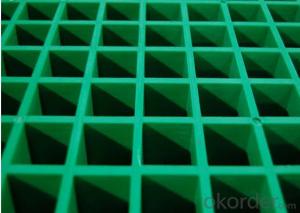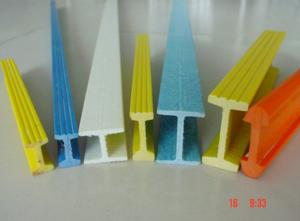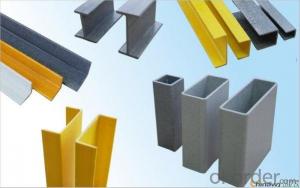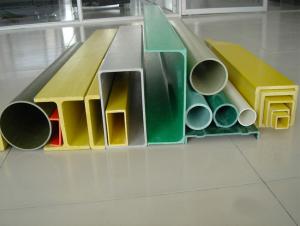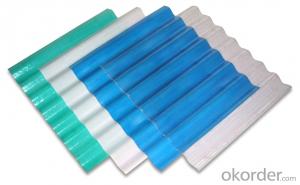FRP Pultrusion Profiles for Convenient and Quick Installation Gratings
- Loading Port:
- Tianjin
- Payment Terms:
- TT OR LC
- Min Order Qty:
- 5000 m.t.
- Supply Capability:
- 30000 m.t./month
OKorder Service Pledge
OKorder Financial Service
You Might Also Like
Specification
COMPANT DESCRIPTION
CNBM,China National Building Materials Group is a state-owned enterprise in charge of administrative affairs in china building materials industry. Established in 1984, CNBM is a large group corporation of building materials with total assets of 25 billion RMB and a total staff of 30,000.CNBM now owns 200 subordinating firms of solely owned and joint-venture companies.
CNBM International Corporation is one subsidiary of CNBM, we focus on offering good-quality products,professional service and complete solution to our customers. Strong delivery capacity, advanced technology& management, strong financing capability and excellent after-sale service are our advantages in sharing international market.
PACKAGING & DELIVERY
1.Packaging Details
standard packing or your requirement
2.Delivery Detail
Shipped in 30 days after payment
CHARACTERISTICS
Pultruded grating is made by a par ticular assembly process, which using “I” shape as its main load-bearing and special rod to go through the bearing bar. Pultruded grating include the standard grating and the custom grating, the custom grating can be designed to meet customer’s requirement or special using condition by changing the shape, size and space of the bearing bars,
the sur face can be covered with lozenge panel, grit panel, or added the anti-slippery sand directly.
FRP pultruded grating has the most characteristics of molded grating, but it has its distinct advantages, it has very high fiberglass content in the loading direction, so it has very high load capability, it has more superiority when used at wide span, so that the basic support will be decreased and the project cost will be reduced accordingly.
FEATURES
a. Anti-corrosion and anti-rust
b. Light weight and high strength
c. Anti-flammable
d. Anti- fatigue
e. Safe and anti-slippery
f. Anti-ageing
g. Easy of maintenance
h. Excellent electromagnetism property
i. Good economic benefit
CHOICE FOR PULTRUDED GRATING
Resin: GP resin, ISO resin,VE resin,Phenolic resin
Color choice: Yellow, gray,green, custom color
Surface choice: Groove surface,grit surface,lozenge cover surface
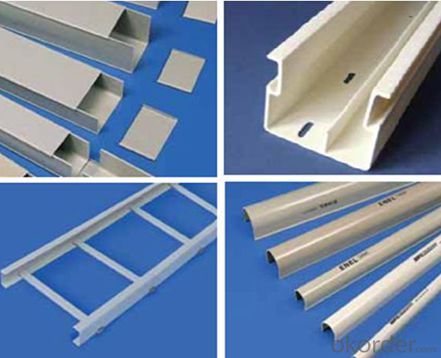
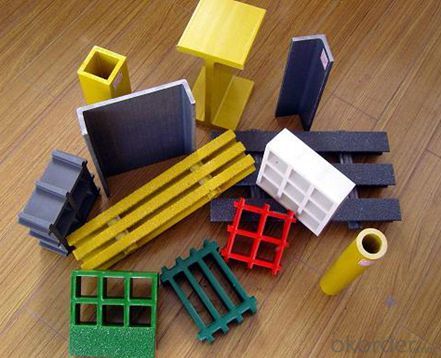
FAQ
1.Q:Are you factory or trading company ?
A:We are Factory produce FRP machines and FRP products.
2.Q:If can customized by customers requirements?
A:yes,we can produce the machine with customized size.
3.Q:How about the payment?
A:We accept any kind of payment.
4.Q:What is the guarantee?
A:Gurantee is one year.
5.Q:If you can training?
A:yes ,we can training in our factory also can send engineers to your factory training.
- Q: Can FRP pultrusion profiles be used in the construction of railway sleepers?
- Yes, FRP (Fiber Reinforced Polymer) pultrusion profiles can be used in the construction of railway sleepers. FRP pultrusion profiles offer several advantages that make them suitable for this application. Firstly, FRP pultrusion profiles are lightweight yet strong, making them ideal for railway sleepers. They have high strength-to-weight ratios and can withstand heavy loads, making them a reliable choice for supporting the weight of trains. Additionally, the lightweight nature of FRP profiles makes them easier to transport and install, reducing construction time and costs. Secondly, FRP pultrusion profiles are highly resistant to corrosion, which is a crucial factor for railway sleepers. Traditional materials such as wood or steel are susceptible to corrosion when exposed to moisture and chemicals. FRP profiles, on the other hand, are non-corrosive and do not require regular maintenance or replacement due to rust or decay. Furthermore, FRP pultrusion profiles offer excellent durability and longevity. They are resistant to UV radiation, extreme temperatures, and chemicals, ensuring a longer lifespan compared to traditional materials. This reduces the need for frequent replacements, resulting in lower maintenance and lifecycle costs. Moreover, FRP pultrusion profiles can be customized to meet specific design requirements. They can be manufactured in various shapes and sizes to fit different railway sleeper designs, offering flexibility in construction. Additionally, they can be made in different colors, allowing for aesthetic customization. Lastly, FRP pultrusion profiles offer excellent electrical insulation properties. This is crucial for railway sleepers, as they need to provide insulation between the train tracks and the ground to prevent electrical interference and ensure safe operation. In conclusion, FRP pultrusion profiles are a suitable choice for the construction of railway sleepers due to their lightweight, high strength, corrosion resistance, durability, customization options, and electrical insulation properties.
- Q: How do FRP pultrusion profiles perform in extreme humidity conditions?
- FRP pultrusion profiles perform exceptionally well in extreme humidity conditions. The fiberglass-reinforced plastic material used in the profiles is highly resistant to moisture absorption, preventing any degradation or dimensional changes. This makes them ideal for applications in humid environments, as they maintain their strength, durability, and structural integrity over time.
- Q: Can FRP pultrusion profiles be used in agricultural structures?
- Yes, FRP pultrusion profiles can certainly be used in agricultural structures. They offer several advantages such as high strength-to-weight ratio, corrosion resistance, and durability, making them suitable for various applications in the agricultural industry. These profiles can be used in structures like greenhouse frames, livestock enclosures, support beams, fencing, and other agricultural infrastructure.
- Q: Are FRP pultrusion profiles fire resistant?
- Yes, FRP (Fiber Reinforced Polymer) pultrusion profiles are fire resistant. The combination of the reinforcing fibers and the polymer matrix used in FRP pultrusion profiles provide them with excellent fire resistance properties. These profiles are manufactured using a process known as pultrusion, which involves impregnating reinforcing fibers such as fiberglass or carbon fiber with a thermosetting resin. This resin undergoes a curing process, resulting in a strong and durable composite material. One of the key advantages of FRP pultrusion profiles is their inherent fire resistance. The thermosetting resin used in the manufacturing process has properties that make it highly resistant to fire. When exposed to flames or high temperatures, the resin does not melt or burn easily, thus preventing the spread of fire. Additionally, the reinforcing fibers in FRP profiles also contribute to their fire resistance. Fiberglass, for example, is an inorganic material that does not burn. It acts as a barrier against heat transfer and helps to minimize the spread of flames. Furthermore, FRP pultrusion profiles can be engineered to meet specific fire safety standards and regulations. By incorporating additional fire retardant additives or using specialized resin systems, the fire resistance of these profiles can be further enhanced. It is important to note that while FRP pultrusion profiles are fire resistant, their exact fire rating may vary depending on the specific composition and design. Therefore, it is essential to consult with manufacturers or suppliers who can provide detailed information about the fire resistance properties of their FRP pultrusion profiles.
- Q: Are FRP pultrusion profiles suitable for the manufacturing of boat hulls?
- Yes, FRP (Fiber Reinforced Polymer) pultrusion profiles are suitable for the manufacturing of boat hulls. Their high strength-to-weight ratio, corrosion resistance, and durability make them an ideal choice for boat construction. Additionally, pultruded profiles can be customized to meet specific design requirements and offer excellent dimensional stability, making them a reliable option for boat hull manufacturing.
- Q: How do FRP pultrusion profiles perform in high-traffic areas?
- FRP pultrusion profiles are an excellent choice for high-traffic areas due to their exceptional performance characteristics. These profiles are made of reinforced fiberglass and resin, resulting in a highly durable material that can withstand heavy loads and constant foot traffic. One of the key advantages of FRP pultrusion profiles is their high strength-to-weight ratio. This makes them lightweight yet incredibly strong, allowing them to handle heavy loads without sacrificing their structural integrity. Additionally, their non-corrosive nature makes them ideal for areas with high foot traffic, where exposure to moisture, chemicals, and other corrosive elements is common. FRP pultrusion profiles also possess excellent resistance to wear and abrasion. This means that even in high-traffic areas, where constant footfalls and movement can cause conventional materials to deteriorate quickly, FRP profiles remain unaffected, maintaining their original appearance and functionality for an extended period. Furthermore, these profiles are highly resistant to UV radiation, which means they do not degrade or fade when exposed to sunlight. This is particularly important for high-traffic areas that are outdoors or have large windows, as the profiles will maintain their strength and aesthetics even under constant exposure to the sun. In terms of maintenance, FRP pultrusion profiles require minimal upkeep. They do not require regular painting or sealing, as their color and finish are built into the material itself. This significantly reduces maintenance costs and efforts, making them a cost-effective choice for high-traffic areas. Overall, FRP pultrusion profiles are an excellent option for high-traffic areas due to their exceptional strength, durability, resistance to wear and abrasion, non-corrosive properties, UV resistance, and low maintenance requirements. Their ability to withstand heavy loads and constant foot traffic ensures their long-lasting performance, making them a reliable choice for any high-traffic environment.
- Q: Are FRP pultrusion profiles resistant to hydrochloric acid?
- FRP pultrusion profiles are generally resistant to hydrochloric acid. The corrosion resistance of FRP (Fiber Reinforced Polymer) materials varies depending on the specific resin and fiber used in the manufacturing process. However, most FRP pultrusion profiles are designed to withstand exposure to a wide range of chemicals, including hydrochloric acid. The corrosion resistance of FRP is attributed to the chemical inertness of the resin matrix, which is typically made of polyester, vinyl ester, or epoxy. These resins provide a protective barrier against chemical attack and allow FRP profiles to maintain their structural integrity even in harsh environments. That being said, the level of resistance can vary depending on the concentration and temperature of the hydrochloric acid. In highly concentrated or elevated temperature conditions, the resistance may be reduced. It is always advisable to consult the manufacturer's specifications or seek expert advice to ensure the suitability of FRP pultrusion profiles for specific acid concentration and temperature ranges. Overall, FRP pultrusion profiles are known for their excellent chemical resistance, and they are often chosen for applications where exposure to acids or corrosive environments is expected.
- Q: Can FRP pultrusion profiles be used in the construction of railway platforms?
- Yes, FRP (Fiber Reinforced Polymer) pultrusion profiles can be used in the construction of railway platforms. FRP profiles are lightweight, durable, and corrosion-resistant, making them suitable for various structural applications. They offer high strength-to-weight ratio, reducing the load on the platform structure while maintaining structural integrity. Additionally, FRP profiles can be customized to meet specific design requirements, providing flexibility in creating efficient and long-lasting railway platforms.
- Q: Can FRP pultrusion profiles be used in the construction of safety barriers?
- Indeed, FRP pultrusion profiles prove to be highly effective in the construction of safety barriers. When it comes to safety barrier applications, FRP pultrusion profiles surpass traditional materials like steel or concrete in numerous ways. To begin with, the strength and durability of FRP pultrusion profiles are remarkable. With their high tensile strength, these profiles can withstand substantial loads and impacts without deforming or breaking. Consequently, they are well-equipped to endure the forces that safety barriers may face, such as vehicular collisions or other accidents. Moreover, FRP pultrusion profiles possess a lightweight nature. When compared to steel or concrete, FRP is significantly lighter, which facilitates transportation, installation, and handling during construction. The reduced weight of FRP also proves advantageous in terms of ease of installation and cost-effectiveness. In addition, FRP pultrusion profiles boast excellent corrosion resistance. Unlike steel, FRP remains impervious to rust or corrosion, which can compromise the barrier's integrity and safety over time. This makes FRP particularly suitable for safety barriers exposed to outdoor environments or harsh weather conditions. Furthermore, FRP pultrusion profiles are non-conductive and non-magnetic, which presents advantages in certain safety barrier applications. For instance, in areas where electrical or magnetic interference poses a concern, such as near power lines or sensitive equipment, FRP barriers can provide an additional layer of safety by avoiding potential electrical or magnetic hazards. All in all, FRP pultrusion profiles offer a dependable and efficient solution for constructing safety barriers. Their strength, durability, lightweight nature, corrosion resistance, and non-conductive properties render them a suitable choice for a wide range of safety barrier applications.
- Q: Can FRP pultrusion profiles be used in the construction industry?
- Indeed, the construction industry can utilize FRP (Fiber Reinforced Polymer) pultrusion profiles. These profiles offer numerous benefits that make them appropriate for diverse construction applications. To begin with, FRP pultrusion profiles possess exceptional strength while remaining lightweight. Consequently, they are an excellent choice for construction projects as they provide a high strength-to-weight ratio. This reduces the overall weight of the structure while preserving its structural integrity. This advantage is particularly valuable for applications like bridges, walkways, and platforms. Furthermore, FRP pultrusion profiles exhibit a high level of resistance to corrosion. Unlike conventional construction materials such as steel or wood, FRP does not rust, rot, or corrode when exposed to harsh environmental conditions, chemicals, or moisture. Consequently, FRP profiles are ideal for outdoor or marine applications where corrosion can be a concern, such as seawalls, docks, or offshore structures. In addition, FRP pultrusion profiles possess excellent electrical and thermal insulation properties. This makes them suitable for applications where minimizing electrical conductivity is necessary, such as electrical enclosures or cable trays. Moreover, FRP profiles have low thermal conductivity, which enhances energy efficiency in buildings by reducing heat transfer. Furthermore, FRP pultrusion profiles are highly durable and require minimal maintenance. They boast a long service life and do not necessitate regular painting, sealing, or treatment like traditional materials. Consequently, significant cost savings can be achieved throughout the life cycle of a construction project. Lastly, FRP pultrusion profiles can be customized to meet specific strength, stiffness, and dimensional requirements. They can be produced in various shapes, sizes, and colors, allowing for flexibility in design. This versatility renders FRP profiles suitable for a wide range of construction applications, including beams, columns, gratings, handrails, and structural components. To summarize, FRP pultrusion profiles are a viable choice for the construction industry due to their lightweight nature, high strength, corrosion resistance, electrical and thermal insulation properties, durability, low maintenance requirements, and design flexibility.
Send your message to us
FRP Pultrusion Profiles for Convenient and Quick Installation Gratings
- Loading Port:
- Tianjin
- Payment Terms:
- TT OR LC
- Min Order Qty:
- 5000 m.t.
- Supply Capability:
- 30000 m.t./month
OKorder Service Pledge
OKorder Financial Service
Similar products
Hot products
Hot Searches
Related keywords
